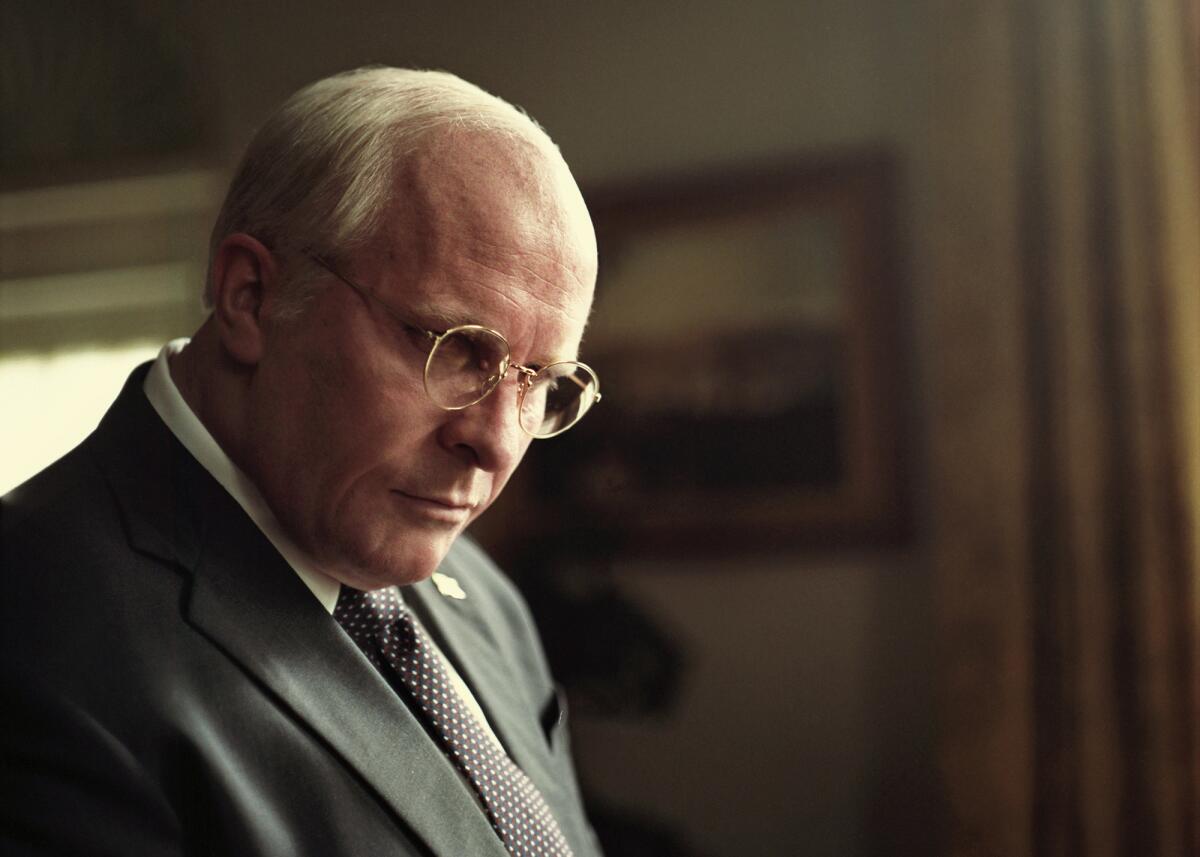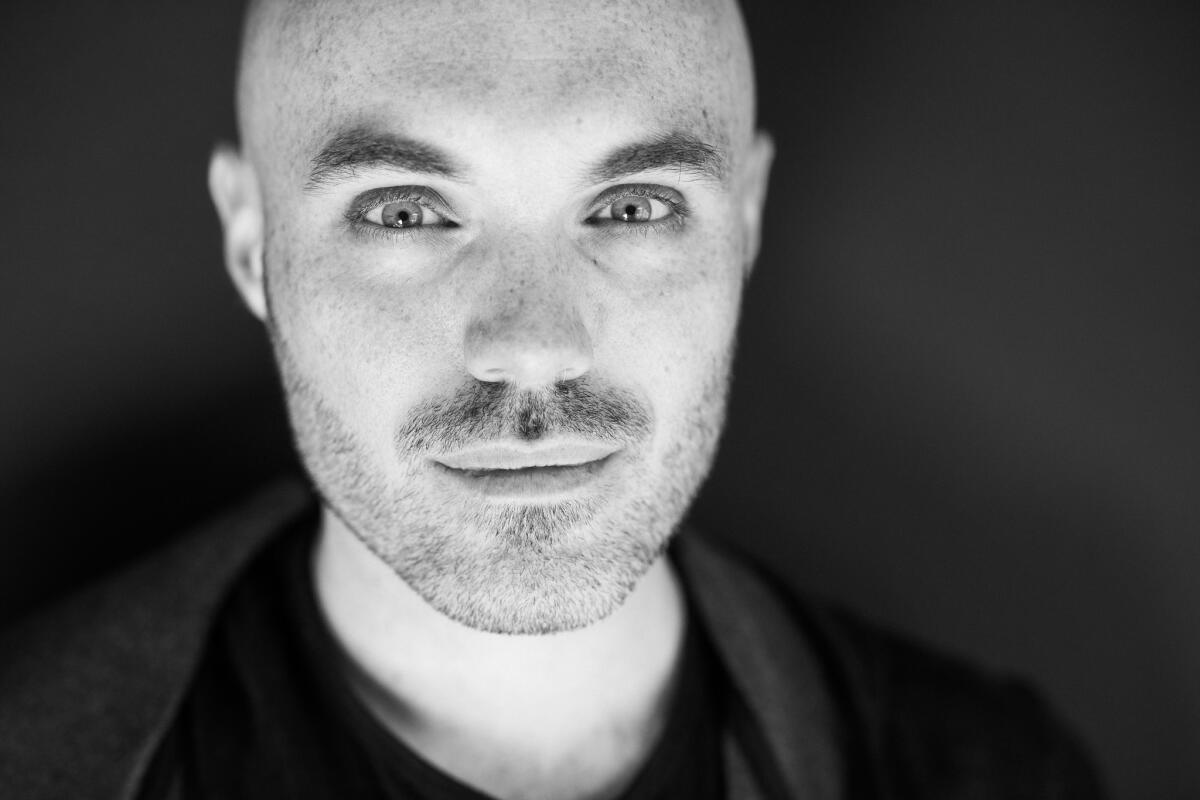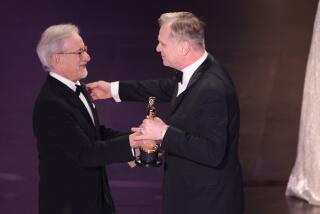Three cheers for the iconoclasts, rule-breakers, outsiders and runners-up of history
Kings and queens, presidents and prime ministers, Nobel Prize winners and Medal of Freedom recipients. When it’s time to throw a real-life story into the awards season race, you may as well go big or go home. Think 2010’s “The King’s Speech,” 2012’s “Lincoln,” 2014’s “The Theory of Everything” about Stephen Hawking and “Selma” about Martin Luther King Jr., and 2017’s Winston Churchill film “Darkest Hour.”
Now take a look at 2018’s lineup of award season subjects. Sure, there are stories of heroes: “First Man” looks at Neil Armstrong and “On the Basis of Sex” tells us about Supreme Court Justice Ruth Bader Ginsburg. But there’s something else going on this season in the telling of real-life stories. Consider the elderly bank robber (Forrest Tucker, “The Old Man & the Gun”), a scandalized senator (Gary Hart, “The Front Runner”), a forger (Lee Israel, “Can You Ever Forgive Me?”), a groundbreaking writer (“Colette”), a painter with mental health issues (Vincent van Gogh, “At Eternity’s Gate”) and arguably the nation’s most powerful vice president (Dick Cheney, “Vice”).
Of course, none of the filmmakers behind these entrants collaborated to bring us this particular rogues’ gallery, but the collection as a whole does present an interesting look at where our cinematic curiosity lies this year — with iconoclasts, rule-breakers, outsiders and runners-up of history.
“These are the stories we’re drawn to,” says Jay Carson, who wrote “Front Runner” with Matt Bai. “The huge person that everyone’s focused on, and that 6,000 books have been written about — no thank you. If you say to us, ‘Here’s a little thing you thought you knew and you didn’t, and it’s really relevant for today and no one knows the story — you got me.”
“Forrest Tucker is a minor character in history who saw himself as bigger than he was,” says “Old Man” director David Lowery. “There’s something beautiful and tragic about that, these characters who want to be legends but never manage to pull it off.”
Not only are these characters refreshingly not required to be upright paragons of history, often these are the stories we haven’t heard told and retold. “They didn’t lead countries through a world war or civil war, but they can still have an impact on humankind that lasts centuries,” says “At Eternity’s Gate” producer Jon Kilik.
Some of these outsider subjects are trailblazers ahead of their time, like the writer Colette, whose husband used his name to market her works. Their discovery arc can make a story straight-up inspiring.
“It’s about a woman breaking free, a woman challenging societal norms,” says director Wash Westmoreland. “People throughout history live ahead of their times, and you have to wait for the times to catch up with them. Colette is like that.”
But other characters require some finessing to make them palatable. Director Marielle Heller front-loaded her “Can You Ever Forgive Me?” story of Israel with an opening scene in which she raises a middle finger to the strait-laced annoying bosses after swigging whiskey at work.
“Almost every director hates the term ‘likable,’ because you’re hoping that you’re not having to worry about that with your characters,” she says, noting colorfully that Lee doesn’t care what people think. “She moves through the world with an attitude that is so different than most people — and I found her refreshing. And once you know her life and her experience, you think, ‘I might do the same.’”

As for “Vice,” making the controversial Cheney a relevant figure required digging into his background, says director Adam McKay. “We’re told that all the pieces of this history are boring, but they just needed to be assembled,” he says. “We found this epic American story that tracks with the American dream of a kid from nowhere … who starts to climb and have remarkable success. His story tracks with the arc of America in the last 50 or 60 years, and how that dream twisted and turned tragically,” he says. “It’s nice to see people light up as the movie goes on, and they see a story that probably should have been a big story all along — and wasn’t.”
And that’s one of the key features in any story about an outsider: If they aren’t regarded as historically important — what makes them worthy of a two-hour (or more) movie now? A big part of it, say filmmakers, is that their lives have specific meaning in the here and now.
“They reflect the rest of us,” says “Front Runner” director Jason Reitman. “Their heroics and their tragedy reflect us in this moment as we try to figure out how to navigate 2018. These characters say more about us than they say about themselves.”
Adds star Hugh Jackman, “Sometimes we want to understand the major figures in history and remind us of their character — but sometimes we want to actually question ourselves as to why some people were not bigger in history. Films can really look at our world, and not just at the heroes and villains — but who we ignore and forget.”
Lowery feels similarly. “We see the best of ourselves when we go to see ‘Lincoln’ or ‘Darkest Hour.’ We see the ideals to which we strive.”

But when we go to see outsiders and iconoclasts, he adds, it’s a very different story. Then it’s about their darker sides — and ours. “When we watch someone on the margins or who makes the wrong choices,” he says, “we see precisely what we might become. It goes both ways.”
More to Read
From the Oscars to the Emmys.
Get the Envelope newsletter for exclusive awards season coverage, behind-the-scenes stories from the Envelope podcast and columnist Glenn Whipp’s must-read analysis.
You may occasionally receive promotional content from the Los Angeles Times.






